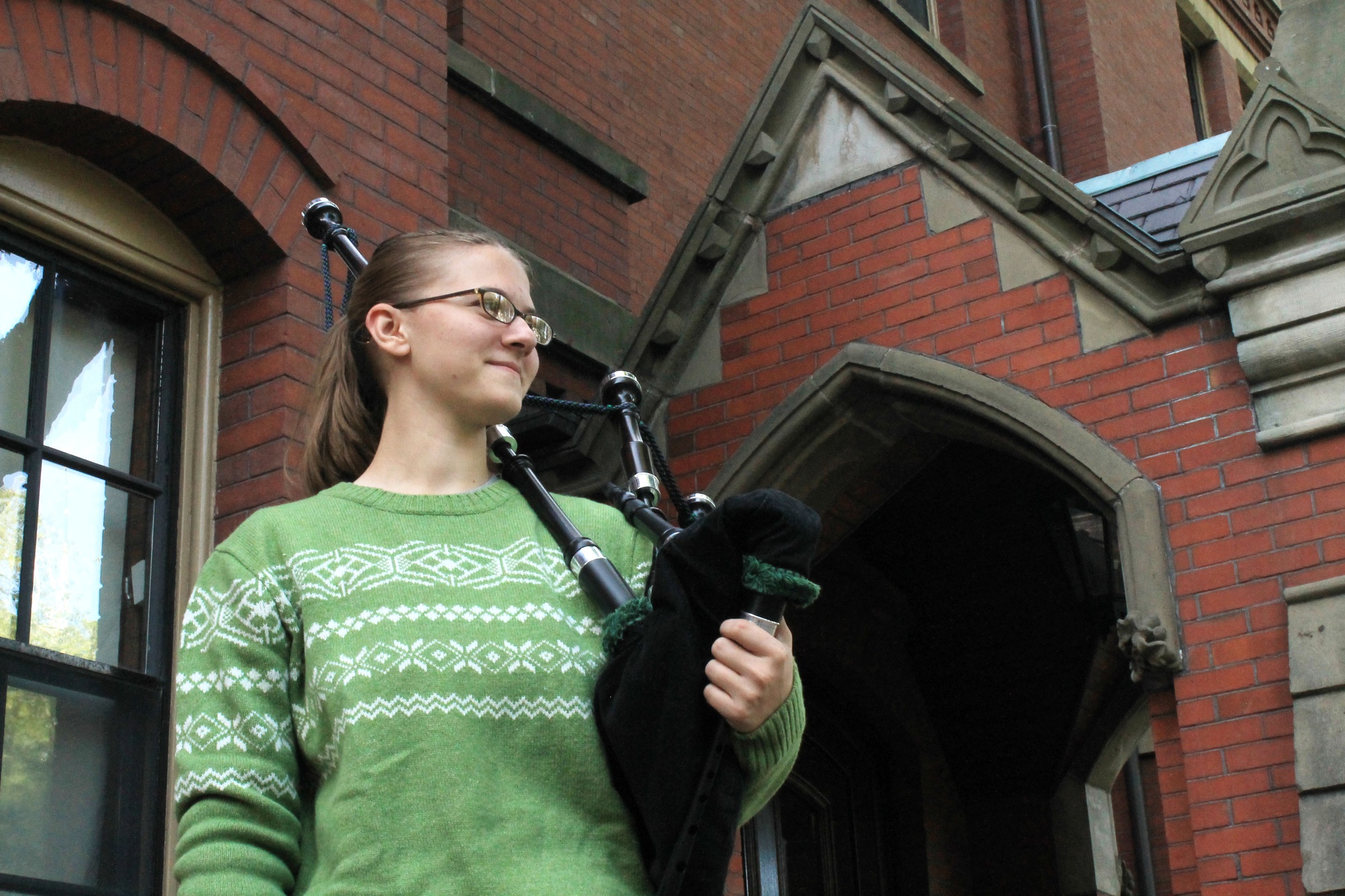
Conversations with Student Bagpipers
From first picking up a bagpipe in February to center stage at the Freshman talent show in September. From Puerto Rico, where next to no one plays the bagpipes, to just outside Boston, the most Irish city in America. FM caught up with two Harvard bagpipers about their bagpiping journey.
Alaina M. Richert ‘19

Richert hails from rural Indiana and never had trouble finding and empty space to practice her various instruments. Out in the country fields, Richert felt free to play her violin, tenor saxophone, trumpet, mallet percussion, or bagpipes without fear of disturbing anyone. Even though she has tried to keep her practice confined to Harvard’s various music rooms, Richert’s music now inevitably finds its way to some unsuspecting listeners.
“I feel like anywhere in the city it would be more difficult to practice your bagpipes without feeling guilty about other people hearing your bagpipes whether they want to or not,” Richert said.
During opening days, a student who had never seen bagpipes before heard her practicing in the basement and went to check it out. The student was adamant about her trying out for the freshmen talent show. Richert demurred.
“I get very nervous performing in front of people, especially if it’s just me,” Richert said. “I didn’t want to stress myself that much over opening days.” Additionally, Richert has less than year of bagpiping experience under her belt.
Soon after, the episode repeated itself in the Wigglesworth practice room. This time, three people came running down to listen to her play in person.
“That’s when I finally went ok... I love playing the bagpipes. I think they’re special and historical and all that stuff and I thought this is something that needs to be shared with other people,” Richert said. “If this is something that makes other people so happy to hear the bagpipes, I feel like I should at least go out there and audition.”
Richert went on to not only audition but perform third at the talent show.
“I would say one of the key reasons I keep playing is so that I can go and share part of Scottish culture with other people.”
Norman R. Stoner ’19
Storer got involved with bagpiping through a serendipitous chain of events. After hearing Irish music in a commercial, Storer got into Irish and then Scottish music on Pandora. Listening to artists like the Irish Rovers and later Enter the Haggis, he developed an affinity for bagpipe rock. He began to try out the chanter — the recorder-like portion of the bagpipe.
However, unlike Richert, who learned to play through a local bagpiping group, Storer never had local peers to model his play after. Stoner, who grew up in Puerto Rico, instead taught himself how to play through the internet.
“Bagpipes are an instrument that are much better learned with an instructor. It’s really hard to make it sound good without having someone else to tell you things you’re doing wrong… that’s one of the reasons I didn’t progress that much,” said Storer, who also divides his time playing string instruments such as the cuatro, tiple, mandolin, ukulele, and vihuela.
Storer and Richert now share the same freshman seminar on Gregorian chant. While he is currently focusing on his commitments to a chorus and mariachi group on campus, Storer is excited to finally be able to collaborate with someone else who shares his same bagpiping interest.
“The mere fact that I know someone who plays the bagpipes is a big step forward.”


